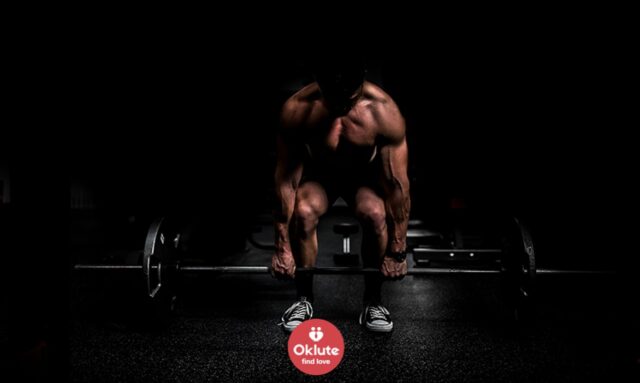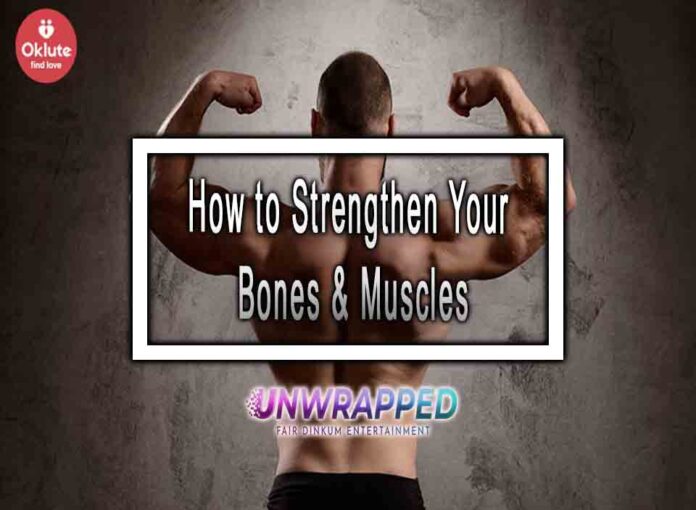Strengthening your bones and muscles is essential for overall health and well-being. As we age, maintaining bone density and muscle mass becomes increasingly important to prevent conditions such as osteoporosis and sarcopenia. This piece of writing will guide you through various strategies to strengthen your bones and muscles, including exercise, nutrition and lifestyle changes.
The Importance of Strong Bones and Muscles
Benefits of Strong Bones
Preventing Osteoporosis: Strong bones help prevent osteoporosis, a condition characterized by weak and brittle bones.
Supporting Physical Activity: Healthy bones provide the structure and support needed for daily activities and physical exercise.
Reducing Fracture Risk: Strong bones are less likely to break from falls or minor injuries.
Benefits of Strong Muscles
Enhancing Mobility: Strong muscles improve mobility and balance, reducing the risk of falls.
Boosting Metabolism: Even the Oklute escorts Australia tend to boost their metabolism. Muscle mass increases metabolic rate, helping with weight management.
Improving Quality of Life: Strong muscles enhance physical performance and overall quality of life.
Exercise for Bone & Muscle Strength
Weight-Bearing Exercises
Weight-bearing exercises force you to work against gravity, stimulating bone growth and improving bone density. Examples include:
Walking: A simple and effective weight-bearing exercise suitable for people of all ages.
Running & Jogging: These activities provide a higher impact and more significant bone-strengthening benefits.
Hiking: Walking on uneven terrain adds an additional challenge, benefiting both bones and muscles.
Strength Training
Strength training exercises target muscle growth and strength, which in turn supports and strengthens bones. Key exercises include:
Weightlifting: Using free weights or machines to perform exercises like squats, deadlifts, and bench presses.
Resistance Bands: These provide varying levels of resistance to target different muscle groups.
Bodyweight Exercises: Push-ups, pull-ups and squats use your body weight to build muscle.
Flexibility & Balance Exercises
Maintaining flexibility and balance is crucial for preventing falls and injuries. These exercises include:
Yoga: Enhances flexibility, balance and muscle strength through various poses and stretches.
Tai Chi: This gentle martial art improves balance and muscle strength with slow, controlled movements.
Pilates: Focuses on core strength, flexibility and overall body conditioning.
Nutrition for Bone and Muscle Health
Calcium-Rich Foods
Calcium is vital for bone health. Ensure you consume enough through these sources:
Dairy Products: Milk, cheese and yogurt are excellent sources of calcium.
Leafy Greens: Kale, spinach and collard greens provide a plant-based calcium source.
Fortified Foods: Some cereals, juices and plant-based milks are fortified with calcium.
Vitamin D
Vitamin D helps the body absorb calcium and is crucial for bone health. Sources include:
Sun Exposure: The body produces vitamin D when exposed to sunlight.
Fatty Fish: Salmon, mackerel and sardines are rich in vitamin D.
Supplements: Vitamin D supplements can help if dietary intake and sun exposure are insufficient.
Protein
Protein is essential for muscle repair and growth. Include these protein-rich foods in your diet:
Lean Meats: Chicken, turkey and lean cuts of beef provide high-quality protein.
Fish & Seafood: In addition to protein, these are excellent sources of omega-3 fatty acids.
Legumes: Beans, lentils and chickpeas are great plant-based protein sources.
Nuts & Seeds: Almonds, chia seeds and flaxseeds offer protein and healthy fats.
Other Nutrients
Magnesium: Found in nuts, seeds, whole grains and green leafy vegetables, magnesium plays a role in bone structure.
Vitamin K: Important for bone metabolism, it is found in green leafy vegetables, such as kale and spinach. Whether someone is a sports person or a Bangalore escort service, they must not ignore the intake of Vitamin K.
Omega-3 Fatty Acids: Present in fatty fish, flaxseeds and walnuts, omega-3s reduce inflammation and support bone and muscle health.
Lifestyle Changes for Bone & Muscle Strength

Regular Exercise
Consistency is key. Aim for a balanced routine that includes weight-bearing exercises, strength training and flexibility exercises. Try to:
Exercise Daily: Even short, daily activities contribute to bone and muscle health.
Mix It Up: Vary your exercises to target different muscle groups and prevent boredom.
Avoid Smoking & Limit Alcohol
Quit Smoking: Smoking weakens bones by reducing blood flow and the ability to absorb calcium.
Moderate Alcohol Consumption: Excessive alcohol intake can lead to bone loss. Stick to moderate drinking guidelines.
Maintain a Healthy Weight
Balanced Diet: Focus on a balanced diet rich in fruits, vegetables, lean proteins and whole grains.
Avoid Crash Diets: Sudden weight loss can lead to bone loss. Aim for gradual, sustainable weight management.
Get Regular Check-ups
Bone Density Tests: These tests can help assess bone health and identify early signs of osteoporosis.
Blood Tests: Regular blood tests can monitor levels of key nutrients like calcium and vitamin D.
Tips for Specific Populations
Children & Adolescents
Building strong bones during childhood and adolescence sets the foundation for lifelong bone health. Encourage:
Physical Activity: Encourage kids to engage in sports and outdoor activities.
Healthy Diet: Ensure they consume adequate calcium and vitamin D.
Adults
Maintaining bone and muscle health is crucial in adulthood to prevent future issues. Focus on:
Regular Exercise: Incorporate weight-bearing and strength-training exercises into your routine.
Balanced Nutrition: Maintain a diet rich in calcium, vitamin D and protein.
Older Adults
Older adults should prioritize bone and muscle health to maintain independence and reduce the risk of falls. Key strategies include:
Gentle Exercise: Focus on low-impact, weight-bearing exercises and strength training, just like the girls from Birmingham escort services.
Fall Prevention: Work on balance and flexibility exercises to reduce the risk of falls.
Common Myths & Misconceptions
Myth 1: Only Dairy Products Provide Calcium
While dairy is a rich calcium source, many plant-based foods and fortified products also provide this essential nutrient.
Myth 2: Strength Training is Only for Young People
Strength training benefits people of all ages, including older adults. It helps maintain muscle mass, bone density and overall strength.
Myth 3: You Only Need Calcium for Strong Bones
Calcium is crucial, but other nutrients like vitamin D, magnesium and protein also play significant roles in bone health.
Strengthening your bones and muscles requires a combination of regular exercise, a balanced diet and healthy lifestyle choices. Incorporating weight-bearing exercises, strength training and flexibility activities into your routine can significantly enhance bone density and muscle mass. Couple up your diet with proper nutrition, including adequate intake of calcium, vitamin D and protein. This way you can support and maintain your bone and muscle health throughout your life. Remember, it’s never too early or too late to start focusing on these aspects of your well-being. By making these changes, you’ll be better equipped to enjoy an active, healthy lifestyle for years to come.










